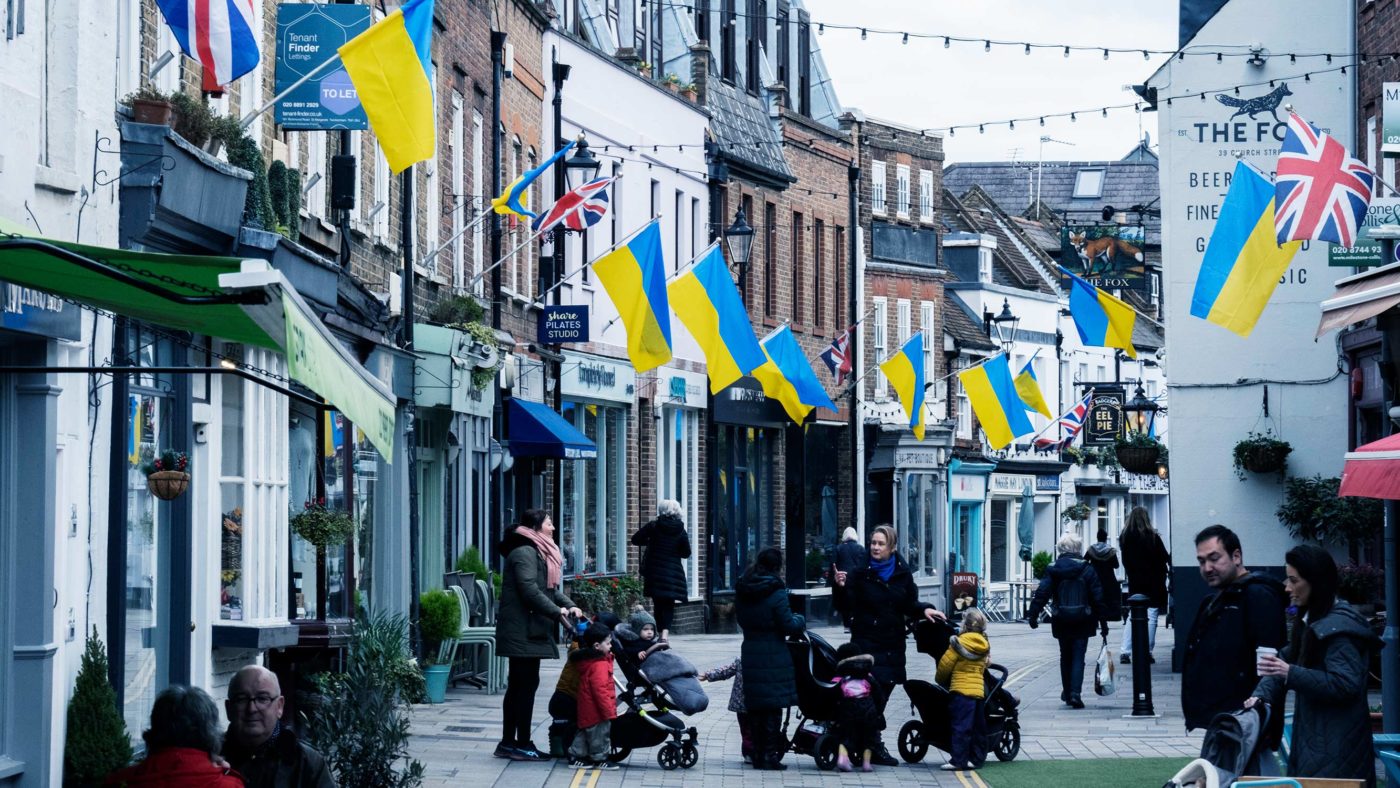Well, better late than never.
After taking pelters from all sides of the Commons for the slow, grudging response to the Ukrainian refugee crisis, the Government has now announced its Homes for Ukraine (HFU) scheme.
Though not the full-fat visa-waiver that many had been calling for, HFU is much more expansive than the Family Scheme or seasonal worker routes that had been available up to now. It is open to any Ukrainian refugee and there is no cap on overall numbers. It’s also worth noting that it was put together not by the much-maligned Home Office, but by Michael Gove’s Department for Levelling Up, Housing and Communities. Gove has also embraced his inner populist by suggesting we use oligarchs’ homes to house refugees – which gets top marks for ironic policymaking, if nothing else.
Under the scheme, Brits who want to house a refugee name the person they want to help – perhaps after finding them on a social media platform – and then fill in a form, committing to house the person for a minimum of six months. There will be checks on would-be hosts – to rule out those with a criminal record, for instance – and identity checks on refugees to mitigate any potential security concerns.
As a ‘thank you’ from the Government, receiving households will get £350 a month for the first year of the refugee’s stay in the UK. This is a flat payment, however, so if someone decides to open their home to multiple refugees, they won’t get any extra money.
Some have also pointed out that HFU funding is only guaranteed for a year, although refugees will have leave to remain for three. But given the huge uncertainties about what conditions will be like in Ukraine in even a month’s time, let alone a year’s, that seems a reasonable period to plan ahead for.
The bigger issue is that most Brits won’t know anyone in Ukraine, so how will they go about finding a ‘named’ person to invite to stay in their home? The Telegraph reports that officials expect charities and humanitarian agencies to act as middlemen, but it doesn’t sound as though the groundwork has yet been done to facilitate that. In the meantime, the scheme feels more tailored to those with an existing connection to Ukraine, rather than members of the public who just want to do their bit.
How many people will actually want to come here is difficult to tell at this stage. As Aliona Hlivco noted in a recent CapX piece, the Ukrainian community in the UK is relatively small at only about 40,000, compared to 250,000 plus who live in Germany and over 1 million who were in Poland even before the Russian invasion swelled their numbers.
For those who do make it to the UK, we shouldn’t be under any illusions as to the difficulties involved in supporting people who have fled a warzone. It’s likely that many will be deeply traumatised and need mental health support, along with basic services such as schools, healthcare and benefits.
In fairness, the Government does seem to have borne that in mind, with £10,000 of public money following each new arrival to help with the cost of providing those services. That might sound like a large outlay, but to put things in context, if 100,000 Ukrainians come to the UK, the annual cost would equate to 2.7% of the £37bn budget for NHS Test and Trace – and that’s before factoring in those who will end up taking a job and paying taxes.
More to the point, we are in a moment of civilisational rupture, and that involves costs if we want to play our part. The fact the scheme is voluntary should also mitigate one of the key points about resettling refugees – that poorer areas have tended to take a disproportionate share of the burden.
And, as many have pointed out, the UK has always offered sanctuary to people fleeing oppression, be it from Uganda, Somalia, Bosnia, Afghanistan, Syria or, latterly, Hong Kong. Steve Ballinger argues elsewhere on CapX today that polling shows the British public are far more welcoming and hospitable than some sections of our commentariat would have you believe – which explains the public uproar at the Home Office’s needlessly bureaucratic approach so far.
Still, the reflexive desire in some quarters to claim Britain is doing a uniquely bad job sticks in the craw, especially when you look at the polling about how Ukrainians themselves feel about this country. Indeed, it’s quite striking how much more popular Boris Johnson is in Lviv than he is in London, with an overall approval rating of +49.6 among Ukrainians.
It’s also a reminder that for Ukrainians, the UK’s role isn’t just about taking in refugees. While the UK could certainly have done better in this regard, we shouldn’t forget the substantial military and financial support we’ve already provided to the Zelensky government. It’s certainly appreciated by Ukrainian soldiers, who we’re told greet every firing of a British-provided anti-tank weapon with a shout of ‘God Save the Queen’.
Click here to subscribe to our daily briefing – the best pieces from CapX and across the web.
CapX depends on the generosity of its readers. If you value what we do, please consider making a donation.


